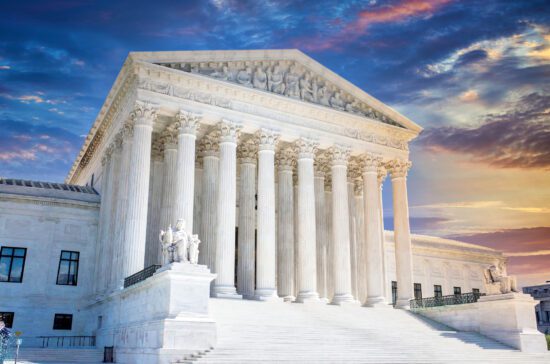No Perfect Party
Prudence & Principles for Stewarding Our Vote
Political parties have become an all-consuming identity in American culture. They are used to sort, characterize, and even vilify others. Godly men and women, committed to what God’s Word teaches about life, religious liberty, marriage and family, and human dignity, will use wisdom to make different choices regarding which candidates and policies they vote for. Understanding this will help us treat one another with kindness and be able to love one another across our differences, even as we have honest discussions about the implications of the gospel on all of our lives. To help foster constructive conversations with one another, we’ve asked four Christians with different voting patterns and principles to expound on how they makes their decisions. May it help you as you interact with fellow church members, family, friends, and neighbors this election season.
Republican Party, Part 1 of 4
Democratic Party, Part 2 of 4
Independent, Part 4 of 4
Lindsay Nicolet: How should Christians think about engagement in the political space?
Matthew Martens: I start with three principles.
- First, in all areas of life, whether we eat or drink or vote or whatever we do, we should do it all to the glory of God—meaning we should do it in a way that reflects his character. There’s no aspect of my life in which I get to or should not want to follow Jesus.
- Second, I would say the fundamental obligation of government is to protect life. You see this in the Noahic Covenant in Genesis 9:6 and in Paul’s writings about human government, where its most basic task is identified as protecting the innocent from evildoers (Rom. 13). A government that disclaims that task is illegitimate no matter what other good it does. A political candidate must be committed to that task to be morally qualified for office regardless of what other good policy he or she may promise to pursue in office. A government or a candidate that lacks a basic commitment to protecting innocent life is an evil.
- Third, as Baptist minister Charles Spurgeon famously said, “Of two evils, choose neither.”1 Or, as Paul put it in Romans 3:8, we may not do evil that good may come of it.
So I think these are the minimum guiding principles for Christians as we think about engagement in politics and public policy.
LN: Are there particular issues you look at when you’re thinking about who you’re going to vote for?
MM: The most fundamental question I have to answer is one of basic moral qualification. I can’t get to the question of which candidate is better or worse until I first answer the question: will this candidate use their power of office to protect innocent life in all contexts? And if a candidate doesn’t satisfy that first threshold test, then they’re not even under consideration at that point.
I would divide issues into categories of good and evil as opposed to prudence or imprudence. I can vote for a candidate who I might disagree with on a matter of prudence, strategy, and political tactics but agree with on the definition of good and evil. For example, I could agree with a candidate that abortion is an evil and yet disagree on a matter of prudence regarding how to pursue the outlawing of abortion. I have to distinguish what I’m disagreeing or agreeing with a candidate about. Then, if we’re in fundamental agreement about what is good and evil and they’ll use their office to pursue good and not evil, then I can evaluate which candidate I think is offering as a matter of prudence, the best way to pursue that goal.
LN: What is the American Solidarity Party? And why is it important to you to be a part of it?
MM: The American Solidarity Party is a recent political party in the United States that is on the ballot officially in some states, is an available write-in candidate in other states, and is working to get on the ballot in other states. Their party platform is largely a reflection of Catholic social teaching and neo-Calvinist theology.
It’s not important to me to be part of any political party.
My commitment is not to any political party. My obligation and what’s important to me is following Jesus, glorifying God in whatever I do.
Matthew T. Martens
As I tried to do that when making decisions for the first 25 years of my voting life, I always and only cast my votes for the Republican Party’s candidates because of their express pro-life stance. But in recent years, that’s no longer the case. In some instances, my voting for the Republican candidates would not be aligned with the three guiding principles that I referenced earlier, nor would voting for the Democratic candidates. I think that’s particularly true with regard to the upcoming presidential election.
Thankfully, there’s a third-party candidate whose platform explicitly affirms a commitment to protecting human life and more generally opposes other forms of evil. That doesn’t mean I have 100% agreement with that candidate or his platform, but my disagreements are around matters of prudence.
LN: How do you feel your Christianity can have an effect on political parties?
MM: To affiliate or have loyalty to a political party runs the risk that I am loyal to that party rather than loyal to Christ. I may vote for a particular party’s candidate in an election, but I do not consider myself to have any attachment to that candidate’s party.
I do think that Christians can influence a particular party or candidate. But I also think that there’s a real risk that the party could influence us. We could compromise on matters of good and evil out of concern that we’ll be boxed out of influence. And that’s why we have to be committed to following Jesus first and foremost. That may mean being marginalized by not having influence. And that would be a problem if there wasn’t a King of kings; but there is. So I trust that God is sovereign and my obligation is to vote against evil, for good, and make the best judgment I can when it comes to matters of prudence.
LN: How do you answer Christians who disagree with you?
MM: I suspect that the primary argument against my proposal to vote for the American Solidarity Party candidate, rather than the Republican candidate, is that I am in effect voting for the Democratic candidate, which I do not think is a credible argument. To start with simple arithmetic: If I vote for Trump, he has one vote, and Biden has zero votes. If I vote for Biden, he has one vote, and Trump has zero votes. But if I vote for the American Solidarity Party candidate, he has one vote, and both Trump and Biden have zero votes. So, I have not helped Trump against Biden, but neither did my vote help Biden against Trump.
Do I think that across the full array of policy issues, Trump would do more good or at least less evil than Biden? Probably. But I cannot do evil that good may come of it. And empowering a candidate who has expressed his commitment to not protecting human life and who is using his position to affirmatively oppose pro-life laws is to empower a candidate who will pursue evil. I cannot hand the sword of the state to someone who has said they will not use it to protect innocent life.
So of two evils, voting for Trump or Biden, I will choose neither. Some might respond that this is throwing my vote away because realistically, one of the two major party candidates will win. My simple response is that victory by one of the major party candidates will occur if at all, only if my fellow citizens morally fail in casting their votes for one of the major party candidates, not because I have failed in casting mine for the American Solidarity Party.
LN: How do you reconcile the imperfections of the American Solidarity Party with your participation in it?
MM: I don’t have 100% agreement with the platform of the American Solidarity Party or its candidate’s expressed views that aren’t included in the party’s platform. But my disagreements are on matters of prudence, not on matters of evil. So for example, the American Solidarity Party calls for “the immediate cancellation of existing medical debt.” That strikes me as well intentioned, but imprudent, not evil. And that’s an important distinction for Christians.
LN: What encouragement would you offer Christians in an election year, but also in engaging with politics in general?
MM: I’d offer two thoughts. First, some trust in chariots and some in horses, but we trust in the name of the Lord our God (Ps. 20:7). Our fate does not rest in the hands of men, not even seemingly powerful men holding government office. As Daniel says, God is sovereign over the kingdoms of men (Dan. 4:17).
Second and related, our hope is eternal, not temporal. He will come again in glory to judge the living and the dead, and his Kingdom will have no end.







